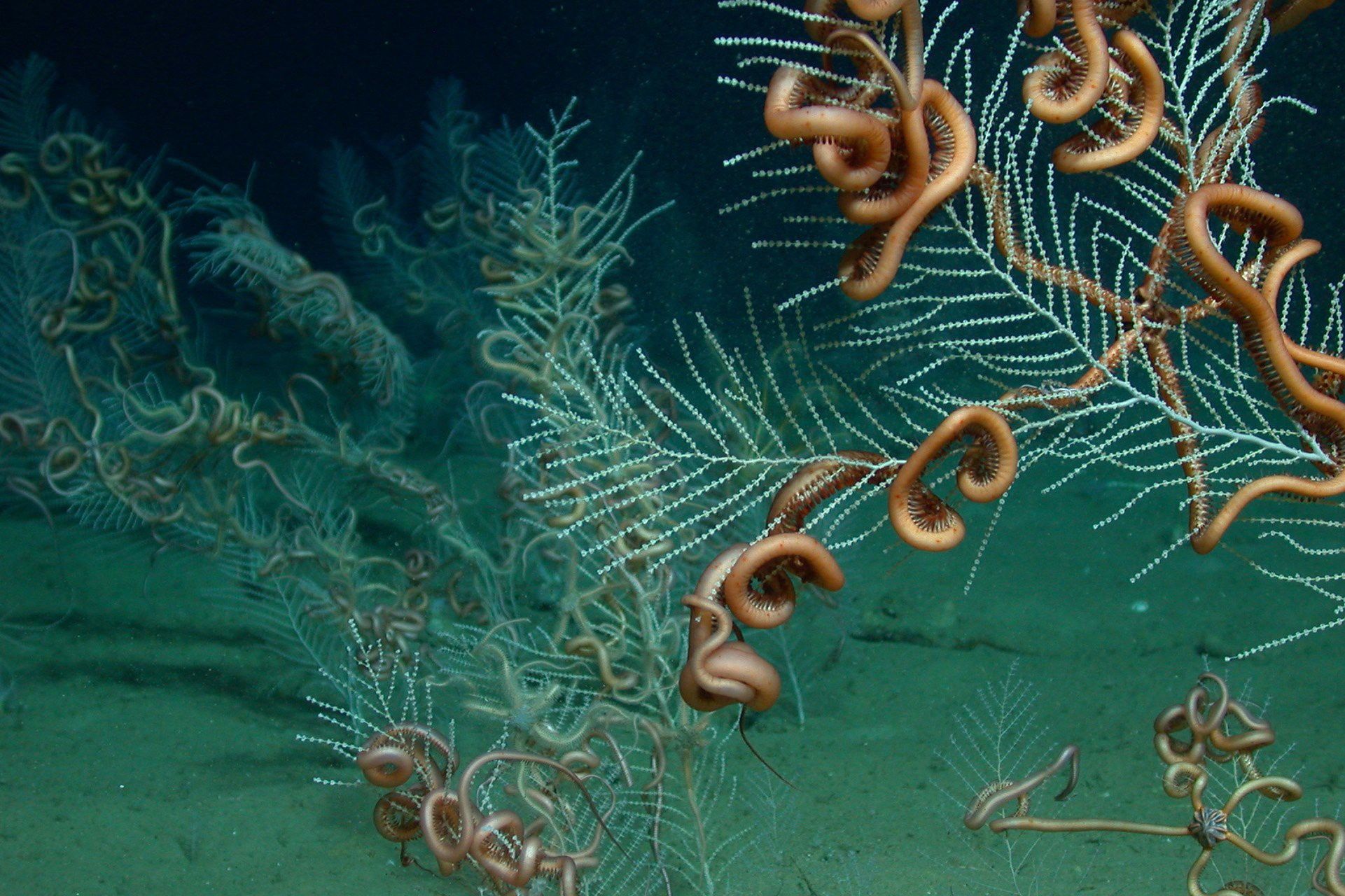Mining the ocean is controversial. Could the Enterprise do it right?

Hundreds of miles offshore and thousands of feet underwater in the middle of the Pacific Ocean sit knobby lumps of rock that could hold the key to humanity’s high-tech future. These ‘polymetallic nodules’ are rich in metals like nickel, cobalt, and copper—essential ingredients in everything from the lithium-ion batteries inside smartphones and electric vehicles to the power lines that channel electrons from power plants to our homes.
Several private and state-backed companies wish to mine them, but the idea is controversial. Not only could deep sea mining devastate seafloor ecosystems we know precious little about, but it also raises tough questions about fairness and who should reap the benefits of such extraction. After all, companies are proposing to mine the international seabed, waters that, according to international law, represent the “common heritage of [hu]mankind.” If someone is going to profit from their exploitation, well, shouldn’t everyone?
Somewhat surprisingly, the idea that nobody should benefit unless everyone does was baked into the international legal framework for deep-sea mining decades ago. In 1971, a group of thirteen Latin American and Caribbean countries submitted a proposal to the United Nations for an entity that would "undertake direct scientific research and exploration" of the ocean floor, and oversee the use of its resources, "on behalf of all mankind." They called it "the Enterprise."

It’s unclear if the name was a direct reference to the most storied ship of exploration from one of the most successful science fiction franchises of all time. A legislative history of the Enterprise that clocks in at just under 400 pages contains no mentions of Star Trek or Captain Kirk, whose exploits aboard the fictional Enterprise came to an abrupt end in 1969 when NBC canceled the show. Yet, intentional or not, it's a fitting name for an entity intended to represent humanity as a whole as it goes boldly forth into the abyss. And the deep sea, while not as vast as the cosmic ocean Kirk's Enterprise explored, is in some ways even more mysterious: After all, we have better maps of Mars than we do of the ocean floor.
That's part of the reason so many scientists, activists, and even governments are now calling for a moratorium on deep-sea mining. Their argument is simple: The deep sea represents Earth's final frontier, a habitat so difficult to access and study that we have virtually no idea what kinds of ecosystems we would be disrupting if we sent in the dredging equipment. Or how long they would be disrupted for. Or, what sorts of knock-on effects that would have on us denizens of the surface. Much like the Federation's Prime Directive not to interfere with alien cultures, the astounding array of alien life found on the ocean floor deserves our protection first and foremost. And we can't protect what we don't understand.
Perhaps, by the time science has progressed to the point that we can say with confidence what the impacts of deep-sea mining will look like, an Enterprise will be ready to carry out the mission. The proposal for a seafaring Enterprise was incorporated into the international legal framework that governs the high seas in the 1970s. The actualization of the Enterprise is one of the charges of the International Seabed Authority (ISA), an organization established in 1994 to regulate mining on the ocean floor.
Yet nearly thirty years later, the Enterprise is still just an idea. Meanwhile, commercial mining by private companies speeds ever closer to reality, with the first applications for mining contracts potentially coming later this year.

Some ISA member nations, most notably developing states, say that the Enterprise must be brought online before any private companies are granted mining contracts. As a coalition of African nations noted in a letter to the ISA in 2018, the Enterprise is "the only mechanism by which the vast majority of developing states can participate" in deep sea exploration and mining considering the high costs and the fact that many developing nations are landlocked. It's one of many topics on the table for discussion at a high-stakes ISA rulemaking blitz underway in Jamacia this month.
The analogy between the starship Enterprise and its seafaring counterpart has limitations. After all, the Enterprise envisioned by ocean regulators would function as a state-backed mining company, albeit one representing every nation on Earth. While it may do some important exploratory work along the way, this Enterprise would be profit-driven (unlike the starship Enterprise, whose socialist crewmembers are regularly confused by the concept of money). It is unclear how the Enterprise would balance its mining mission with its charge to safeguard the seas, but one can easily see those two goals coming into conflict.
Yet, short of a permanent ban on deep-sea mining, it may be the best idea on the table for ensuring that any future mining is carried out for the common good and in a way that safeguards humanity's heritage. Cooperating via the Enterprise will no doubt prove challenging, but in the immortal words of Jean-Luc Picard, "things are only impossible until they are not."